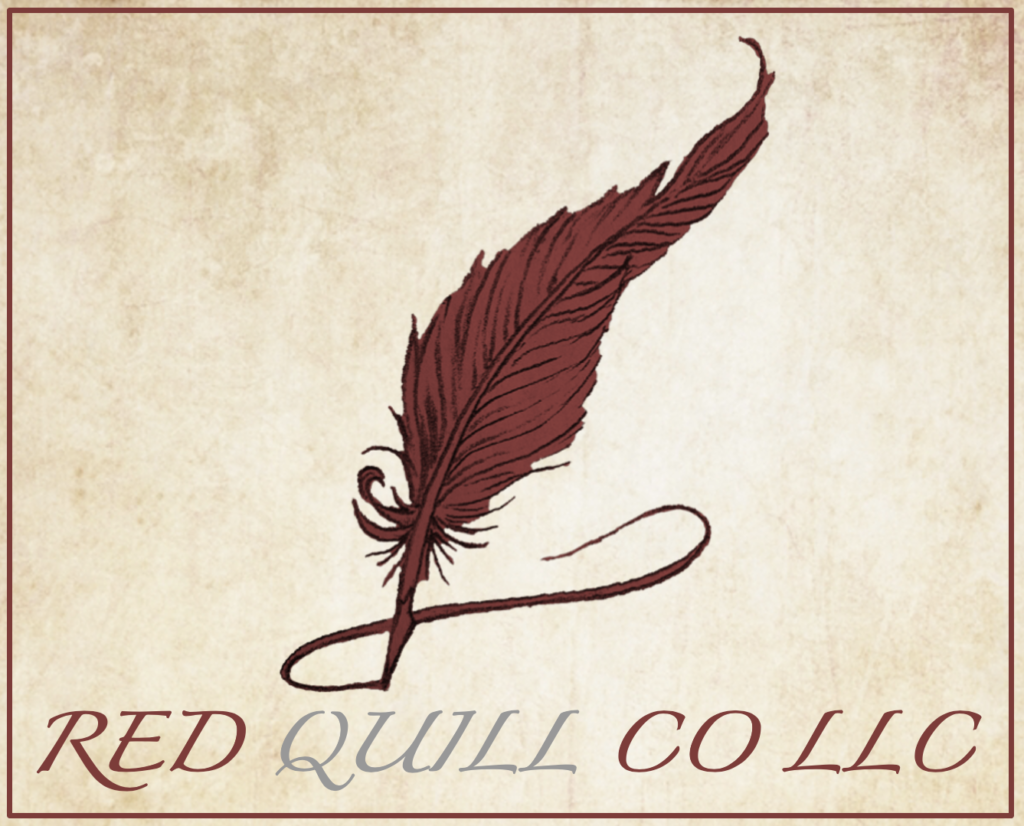Are you a new author and need help honing your craft? Unfortunately, there is no magical formula to becoming a great writer, but I’ve collected a few of novelist Anne Lamott’s best tips from her book book, Bird by Bird, as well as added some of my own that may help push you in the right direction.

Rule 1: Be Kind to Yourself
I tell my daughters often that our words have immense power, so wield them carefully. The things you tell someone can stick with them their entire lives and make an impact on how they think about themselves. Just so, what you tell yourself will become your truth. For some reason, our brains tend to focus on the negative more strongly than the positive. That is why it’s critical to compliment yourself and acknowledge the things you have done well. It’s not about having an inflated ego, it’s about self-care, and you’ve got to love yourself in order to care for yourself.
None of us are perfect and we all have things we need to work to improve, but if you constantly kick yourself with all the things you did wrong, you will find it harder and harder to get back up. It’s up to you to take control of your mindset and purposefully find the positive. Therefore, you must treat yourself the same as you would a good friend. Look for ways in which you can build yourself up and grow. Master a positive mindset and take control of your truth. Trust me, it will make all the difference on whether you quit or grow. That is why rule number one is to be kind to yourself.
Rule 2: Commit and Don’t Quit!
Carve out a specific time each day to sit down and write. Most importantly, keep it consistent. This will help to train your creative unconscious, so push aside your doubts and distractions in favor of committing to writing. Think of it like a job if you need to. It doesn’t matter what you write about so long as you write. Find something, anything, and just write! Revisit it several times, adding in details and fleshing it out a little more each time. Commit and don’t quit! Remember, practice in any skill takes time and commitment, but your skills will improve each time you do it.
Rule 3: Slow Progress Is Better Than No Progress
If you feel frustrated by large word count goals, set smaller ones! Something is better than nothing, and slow progress is better than no progress. Even if you only write 1,000 words a day, you will have 30,000 words at the end of the month. Lamott says she keeps a one-inch picture frame on her desk. When she finds herself struggling to write, she simply focuses on what she could hypothetically see through that tiny frame. Narrow it down to what you can see right now, and the rest will come in due time.
Author E.L. Doctorow said, “[W]riting a novel is like driving a car at night. You can see only as far as your headlights, but you can make your whole trip that way.” The idea is that you don’t need everything figured out immediately or even to write in large blocks at a time. You just need to write what you can see in that moment, a little at a time, and eventually you will have a finished manuscript!
Rule 4: Write Now, Perfect Later
Don’t let perfectionism keep you from writing. Lamott says even the best authors write “shitty first drafts.” She mentions a friend of hers who calls the first draft the “down draft” (just get it written down!), the second the “up draft” (fix it up!), and the third the “dental draft” (check each tooth). If you try to do too much at once, you will quickly get lost. Think of your drafts as stepping stones to the final product and take it one step at a time.
Rule 5: Never Say Whoa in a Mud Hole
My husband once told me, “Never say whoa in a mud hole.” If you find yourself in a tough spot and you allow it to scare you into freezing up, you’re liable to find yourself really stuck. Powering through it is the only way forward. Similarly, if you feel stuck on a certain scene, don’t let it halt your entire progress. Use a tool many famous authors use: brackets. Insert them to make basic notes on things you want to return to and flesh out later. Once you’ve made your note, move on.
[Insert amazing action scene where protagonist battles the dragon.]
If you start with the basics, it will grow and develop each time you return to flesh it out just a little bit more.
[Protagonist and dragon appear to be equally matched, until a minor oversight on the hero’s part gives the dragon the upper hand. Just as all seems lost, the hero’s sword begins to glow with the power he never knew he had!]
Rule 6: Intentional Growth
Take intentional action toward development and advancement. Search for ways to practice, practice, practice and take notice of how you improve each time. Use subtitles when watching your favorite shows and pay close attention when having conversations with someone to learn the natural flow of realistic dialogue. When performing self-edits, cut any filler that doesn’t serve a larger purpose in the story by making sure each line either develops character or furthers the plot. Most of all, write, write, and then write some more.
To learn how to flesh out a scene, Lamott suggests reminiscing on your childhood. Break it down into small tidbits and focus on specific details. Start with kindergarten. Think about your teacher, classmates, and friends. What did you wear or what was in style at the time? Who or what were you jealous of? Did you have any embarrassing moments you thought you’d never live down? What about nicknames? What were your favorite activities or sports? Think about your family vacations, holidays, and birthdays. Consider a memory that was not funny at the time, but you now consider comedic gold. Start small, and then end big.
Writing prompts are an excellent tool for the purpose of practice and intentional growth. You can find endless writing prompts by simply Googling “writing prompts” or you could subscribe to Reedsy’s weekly writing prompts email. Consider entering their weekly writing contest for a chance to practice your craft and win a little extra money while doing it.
Rule 7: It’s Not Personal
Part of intentional growth is to seek feedback. If the idea of having others read your work terrifies you, you are far from alone. However, I believe it’s vital to our growth to learn how to accept feedback in a manner that benefits us. Though it may feel that way, it’s not meant to be personal. Using free beta readers can help you polish and fill in plot holes you have missed and may even save you some money. However, they are not professionals and they may not offer the right type of feedback that is actually helpful.
You see, there is a huge difference between destructive criticism and constructive criticism. One is a vague statement that isn’t helpful and may actually be harmful (e.g., I didn’t like the book), while the other points out something that needs work with more specific details (e.g., The protagonist’s character could develop more depth. What is her driving force? What are her passions, dislikes, and hobbies? What are her vulnerabilities that make her more relatable and realistic?).
If you are lucky enough to receive the proper type of criticism (constructive), make sure you allow it to help you grow. Instead of letting it bring you down, use this information to learn and improve.
Rule 8: Hire an Editor!
Want to ensure you receive constructive criticism? A Developmental Editor will be professional with their feedback, offering specifics and suggestions for how to move forward and improve the story. My goal when working with a client is to give constructive criticism. If something doesn’t align with the timeline or previous details, a character lacks depth, or your dialogue feels rigid, I won’t simply stop at pointing out the problem. I will take the time to fully investigate the issue and offer my observations, questions, suggestions, and examples. I want to ensure that my delivery of this information is helpful and useful, and I will be sure to point out the details and areas in which I feel the author thrives as well.
Even if you decide to skip the developmental edit, you will still need an editor to help polish your manuscript. A Copy/Line Editor will help to perform the first attack on grammar, spelling, and punctuation errors while also smoothing the rhythm of the narrative and maintaining the integrity of your authorial voice. As a bonus, if you’ve completed a developmental edit with me, I will offer light followup developmental notes on your rewrites during this round of editing.
Do not skip the editing process entirely or you can wind up losing readers unnecessarily. Things such as shallow characters, plot holes, inconsistencies, rigid dialogue, spelling errors, grammatical issues, and typos can all cause a reader to put a book down before ever finishing it. But these problems can be easily fixed with the help of your editor (that’s me!). Invest in yourself and your readers will do the same.
Ready for the professional editing process? Contact Me to discuss your editing needs! (Want to learn more about The Post-Writing Process?)
Recommended Reading
If you want to get more in depth on the above topics and continue learning about how to create believable characters, realistic dialogue, an intriguing setting, join writing groups, find beta readers, understand the publication process, overcome writer’s block, and more, I highly recommend you buy Anne Lamott’s book, Bird by Bird. It’s an amazing book that will really help you hone your craft. (Another excellent book about writing…well…books is Stephen King’s On Writing.)
Red Quill Co LLC
Think you might be ready for an editor? If you’re unsure what type of editing you need, want to know how much it might cost, or simply have a question for me, Contact Me today. I am happy to discuss your manuscript with you!
Return to the Tips for Writers index


